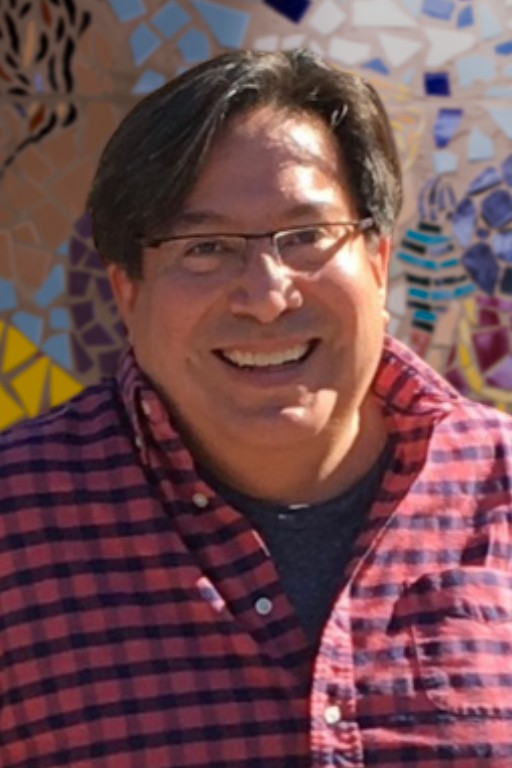GCSW Student Awarded Ima Hogg Scholarship

July 13, 2022
(HOUSTON, TX) - The Hogg Foundation for Mental Health selected MSW Student Raymond Saucillo to receive the 2020 Ima Hogg Scholarship.
The Ima Hogg Scholarship was established in 1956 "to address the need for more trained social workers to provide quality mental health services in Texas."*
Recipients selected must "demonstrate a commitment to pursuing a career in providing mental health services to underserved or underrepresented individuals and their communities in Texas upon obtaining their master's degree."
We asked Raymond Saucillo to share how his time at the GCSW impacted his career and educational aspirations.
---
Name: Raymond Saucillo
Pronouns: he/him
Program and Expected Graduation Year: MSW 2023
What initially inspired you to continue your education in social work?
It certainly has not been a straight path. The short answer is that I felt the need to participate in the life of society, which was not possible in my former career. I wouldn't say my beliefs and values changed so much as they developed.
I had always wanted to do more but felt limited – at least professionally – in what I could do. What drew me to social work was the valuing of activism and advocacy and the opportunity to address the social, racial, economic, and political justice issues that affect society. This mindset and approach were not aspects of my previous role as an architect.
Kurt Vonnegut said, "We are here to help each other get through this thing. Whatever it is." In middle adulthood, I feel my time and energy can be best utilized by helping to work towards that end.
Who is someone you look up to regarding social work and social justice?
That would be a long list that would include anyone who feeds the hungry, gives drink to those who thirst, clothes the naked, and comforts the sick and those in prison. Those that empower the vulnerable, the poor, and the oppressed are an inspiration to me. You don't have to be religious or hold an MSW degree to try and better the world around you. Caring and participation are the key ingredients needed to begin the change process and are attainable on a micro or macro level. Historically, people such as William Tuke, Philippe Pinel, and Dorothea Dix, among others, worked to provide a humane approach to mental healthcare and to change the public's perception of those suffering. I believe they were the original precursors to our profession today.
From a social justice perspective, I have always been in awe of those who practice non-violence in the face of extreme, often brutal aggression. Civil Rights activists such as John Lewis come to mind. I would encourage anyone not familiar with his story to look up the Selma to Montgomery March, The Freedom Riders, and the Freedom Summer of 1964 as examples of strength and grace. I would never ask such sacrifice of anyone. Still, I advocate that we take the time to educate ourselves on the issues of today and actively participate in our community and our democracy by voting!
I would be remiss if I didn't mention Ima Hogg. As a native Texan and Houstonian, I was familiar with her name but must admit I wasn't familiar with her work as a philanthropist and mental health advocate. Together with her brother, she created the Hogg Foundation for Mental Hygiene in 1941, an endowment at the University of Texas, to support and promote mental health and well-being in Texas. The foundation's mission is to "transform how communities promote mental health in everyday life." Their goal is to promote mental healthcare beyond the clinic's walls and into the places where people live, learn, work and play.
Why do you believe it is vital to provide/raise awareness of mental health services to historically underserved communities?
Every person has the right to self-determination, including their values and beliefs, chosen responsibilities, and relationship to society. To make an informed decision, we need exposure to information and resources on which to base those values and beliefs. On a micro level, I can help an individual with an issue at hand at that moment; however, this would be analogous to treating the symptom and not the disease. The goal is to create systemic change that lifts well-being and empowers individuals and communities. We should not only treat suffering and injustice individually but eliminate the root cause where it originates. This process begins with awareness and moves us forward towards action.
Congratulations on being awarded this scholarship! What is the significance of this award as it relates to your education and future career?
On a fundamental level, it helps pay for tuition and offset costs. It eases some of the financial anxiety, which is very real. It frees up mental bandwidth that I can direct towards my studies. On another level, I have become a beneficiary of someone's activism. Eighty years ago, Ima Hogg had the vision, the drive, and the means to create a mental health program for the people of Texas. She envisioned a future in which people with mental health challenges would receive treatment with respect and dignity and improve overall mental health—being accepted by the Hogg Foundation's effort toward reaching this goal is an honor.
How has the GCSW prepared you, so far, for a future career in providing mental health services to underrepresented/underserved communities?
I believe the professors do an excellent job of addressing diversity and development in our classes, the extent of systemic issues, and the effects felt by the historically underrepresented/underserved in our society. I see this unique approach throughout our curriculum. It is a first for me to have classes such as Social Policy, Human Diversity, and Confronting Oppression. I also value my fellow students and the diversity and history they bring into the classroom. They are also integral to my experience and education at the GCSW.